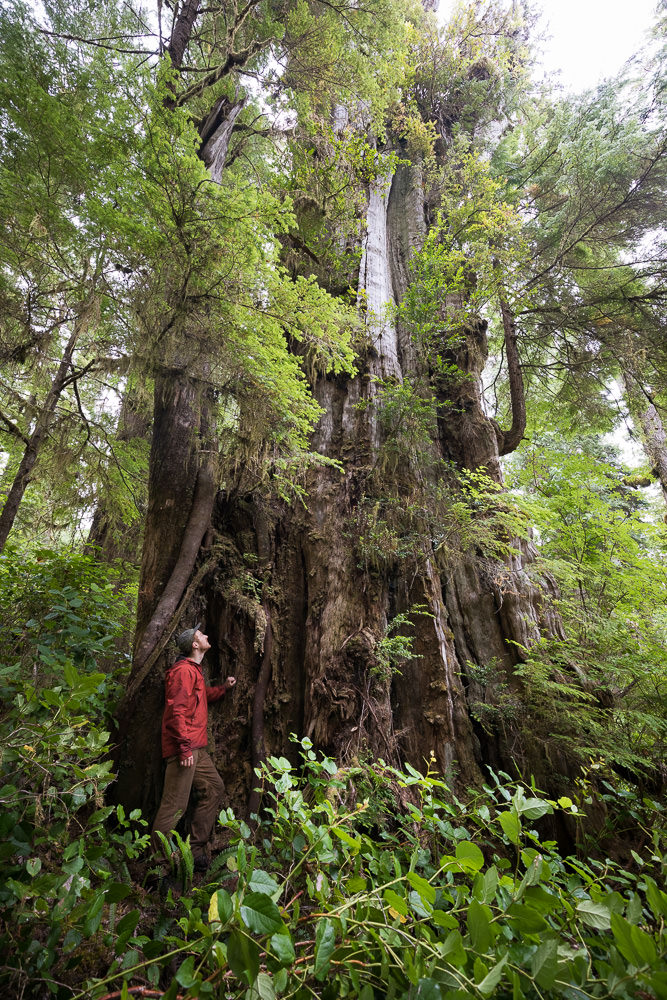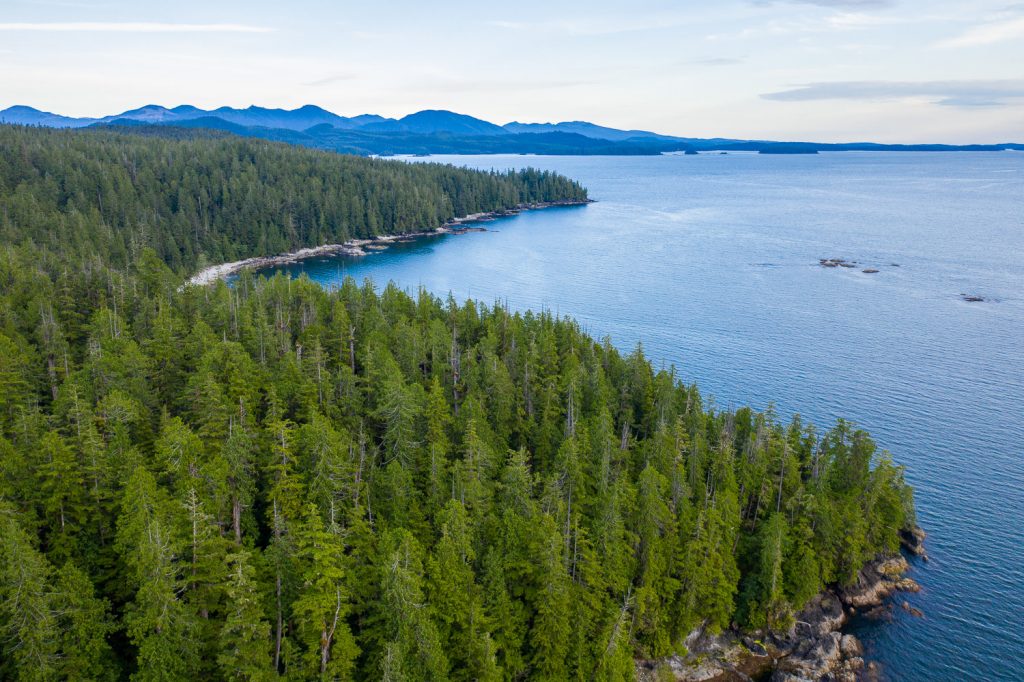 Dec 3 2021
Dec 3 2021West coast old-growth forests recommended for deferral in Vancouver Island’s Barkley Sound at risk of logging.
VICTORIA (Unceded Lekwungen Territories) – Conservationists with the Ancient Forest Alliance (AFA) are raising concerns over Interfor’s plans to log 33 cutblocks, totaling 55 hectares, in rare, intact old-growth forest along the coastline of western Vancouver Island and are calling on the BC government to commit conservation funding to support immediate protection of at-risk old-growth forests.
The approved cutblocks, which members of the AFA visited and explored in summer 2021, are located in Vernon Bay, a stunning stretch of coastal old-growth forest in Barkley Sound in the territories of the Uchucklesaht and Tseshaht nations. Conservationists measured unprotected monumental redcedar trees up to 12 feet in diameter.
Some of the ancient forests found here, where the BC government only recently granted approval for logging, have since been identified by the province’s independent Old Growth Technical Advisory Panel (TAP) for immediate deferral due to their very large old-growth trees. Despite the province having accepted, in principle, the TAP’s recommendation to defer logging in 2.6 million hectares of at-risk old-growth forests across BC last month, logging in the Vernon Bay cutblocks will likely proceed unless the local First Nations and the province immediately enact deferrals.

“These are some of the most remarkable and beautiful coastal old-growth forests we’ve explored this year,” stated AFA campaigner and photographer TJ Watt. “It’s incredibly rare to come across a large, intact stretch of unprotected ancient forest like this today. Allowing logging to proceed would turn these lush forests into a patchwork of ugly clearcuts.”
“Significant conservation funding is needed from the provincial government to support forestry-dependent communities where old-growth forests are protected, which would help ensure that the science panel’s deferral recommendations can be fully implemented. The federal government has put hundreds of millions of dollars on the table for permanent protection. It’s time for the province to meet or exceed that amount.”
Nine of the 33 approved cutblocks are also located within a “non-legal” Old Growth Management Area (OGMA), the result of a legal loophole that allows old-growth forests that have been identified for protection to still be logged.
“Non-legal OGMAs are areas that have been mapped, but haven’t been legalized by a ministerial Order,” stated Watt. “Some of these OGMAs have remained in draft form for as long as a decade, allowing forest companies to cherry-pick the best trees from them in exchange for setting aside forests that are less commercially and ecologically valuable elsewhere. One of the simplest steps the province could immediately take to protect old-growth would be to legalize all non-legal OGMA’s,” stated Watt.
The coastal old-growth in Vernon Bay comprises a habitat for diverse and abundant wildlife, including gray wolves, and is designated as an Important Bird Area for marbled murrelets, an old-growth forest-dependent seabird. Barkley Sound is also a renowned destination for sea kayakers and supports countless marine life, including Orcas, Humpback Whales, and Pacific Gray Whales. With many of the proposed cutblocks located immediately adjacent to the shoreline, the AFA is also concerned the logging will have adverse impacts on the area’s visual quality.

“Approaching the coastline by water, you can easily imagine earlier times when the island was blanketed with intact forests,” said Ian Illuminato, AFA Campaigner. “While its remote location has allowed Vernon Bay to remain largely intact for now, this area and others like it could be lost unless the BC government immediately commits funding to support the development of Indigenous Protected Areas through First Nations land use planning initiatives, which first requires logging deferrals,” said Illuminato.
“Recent studies have shown that old-growth forests are worth far more standing than logged, in terms of economics and in terms of climate change. Considering the catastrophic impacts of climate change felt throughout BC this year, it’s hard to imagine why we would choose to continue eliminating one of our best defenses against drought, floods, and fires through destructive old-growth clearcutting.”





